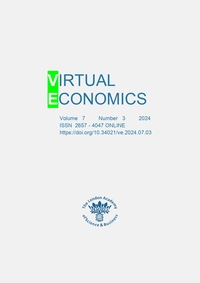The Role of the Pareto Principle in Quality Management within Industry 4.0: A Comprehensive Bibliometric Analysis
The Role of the Pareto Principle in Quality Management within Industry 4.0: A Comprehensive Bibliometric Analysis
Author(s): Aleksy Kwilinski, Maciej KardasSubject(s): Business Economy / Management, Economic development, ICT Information and Communications Technologies
Published by: The London Academy of Science and Business
Keywords: quality; Industry 4.0; artificial intelligence; machine learning; Pareto principle; quality management; sustainable management; development management;
Summary/Abstract: Quality is a fundamental aspect of the management of almost every area of a company, directly influencing the efficiency of its processes. The increased importance of quality, as well as advances in industrialisation methods and computerisation, has stimulated the development of a new generation of technologies, leading to the fourth industrial revolution known as Industry 4.0. In addition to new technologies, the Pareto principle plays an important role in quality management, enabling the identification of the key factors that influence quality, emphasising that 20% of causes are responsible for 80% of quality problems. Its importance has been highlighted by the American Society for Quality (ASQ), which recognises the Pareto principle as one of the seven basic tools used in the area of process improvement. The purpose of this study is to identify the impact of the Pareto principle on quality management on the basis of a bibliometric analysis carried out to characterise the evolutionary aspects of the development of key terms specific to the area under consideration. The analysis focuses on a sample of 8002 items, and the data collected come from the extensive Scopus database of scientific articles, covering the years 1990-2024. VOSviewer software was used as a tool. On the basis of the empirical data, the exponential growth of the number of publications was confirmed in terms of the relationship between the Pareto principle and quality management. On the basis of the resulting visualisation maps, five areas (clusters) were identified and characterised in terms of keyword coincidence, and their evolutionary natures were described. This publication can serve as a basis for further considerations in the impact layer of the Pareto principle in terms of quality management.
Journal: Virtual Economics
- Issue Year: 7/2024
- Issue No: 3
- Page Range: 7-24
- Page Count: 18
- Language: English

